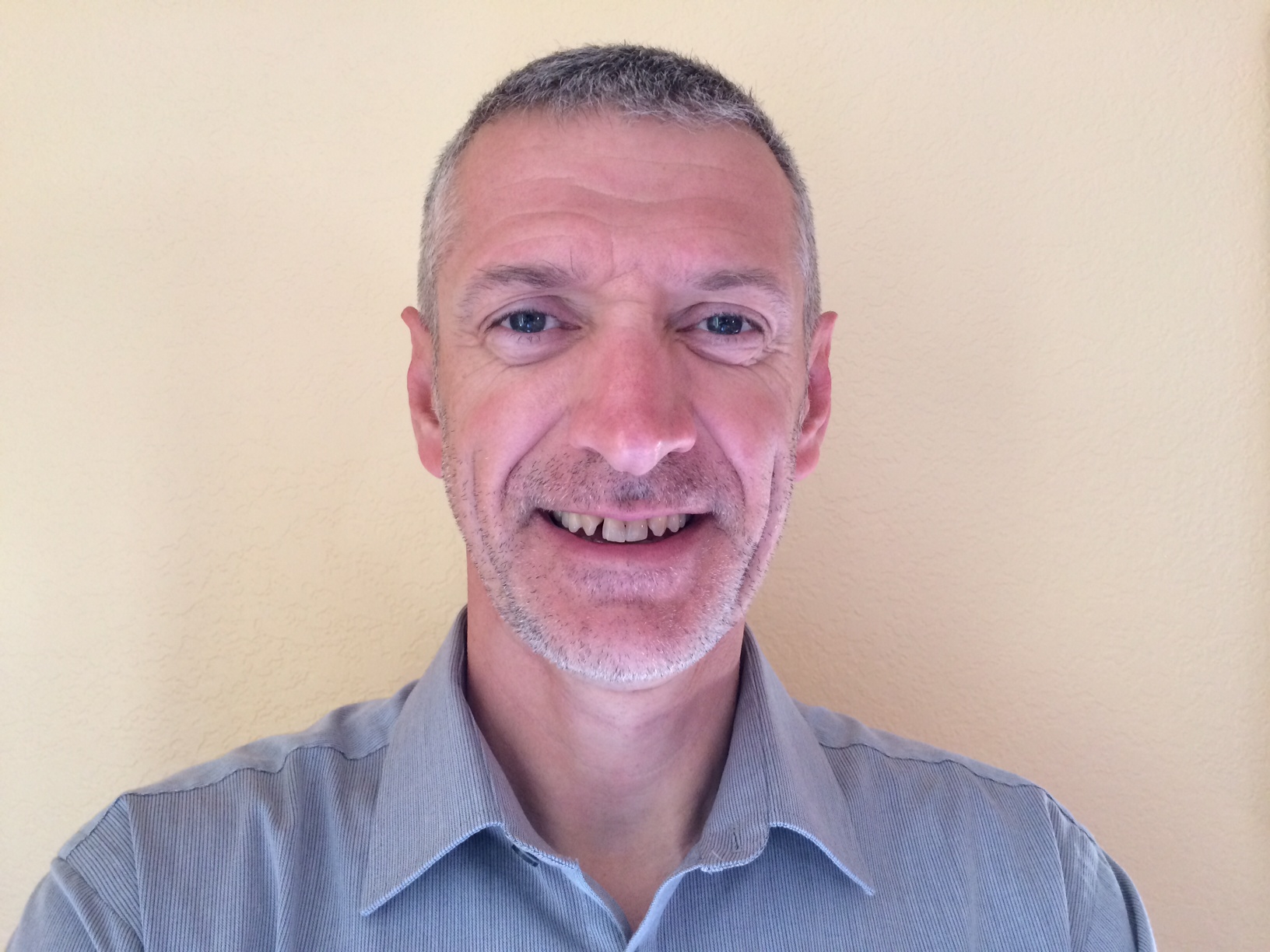Once a month we feature a member of our US based alumni community. We hope this serves as a way to stay in touch and get to know one another despite the grand size of the US.
Alumni and AFAM member Frederic Garderes (Bo 89) is our next AFAM member profile.
Thank you Frederic for sharing with us!

1. Tell us about your career path and area of expertise today. How did it come about?
I started my career as an Industrial Engineer for a fast growing (20% CAGR) Electronic Manufacturing & Services (EMS) company (Solectron). With the group’s expansion, I had the chance to participate in, and lead a number of projects, taking various functions such as Six Sigma & Quality Management, Program Management, and finally Supply-Chain management. Slowly sliding down the Business slope, I rounded my education with an MBA, which I put to use in the US Supply-Chain team of Infineon Technologies of San Jose, a German semi-conductor manufacturer. There, I lead US and Global projects, as well as the North America Distribution Center. More recently, I moved to a smaller size group, Gooch & Housego, where I now lead all Supply-Chain activities for our six US plants, manufacturing various devices for photonics applications.
2. What do you do every day at work? How does being a Gadz’Arts help you in your everyday tasks and team management?
With a healthy growth, G&H has reached the stage where centralizing a number of local functions derives economic benefits. Supply Chain covers a wide range of activities Sourcing, Planning, Purchasing, Logistics, Supplier Management, and increasingly Supply-Chain Compliance (RoHS, WEEE, Dodd-Frank), which fills up my day easily, and keeps things varied. My role is to ensure that teams at each site and across sites consistently seek cost-reductions and shorter lead-times, strengthen their supply-chains, while maintaining minimal amount of inventories to support uninterrupted operations and sales.
Many aspects of my background as a Gadz’Arts have been truly helpful. Being a generalist is a key enabler when participating in product discussions as we are at the intersection of mechanical, optical and electrical engineering. From a managerial perspective, I found being practical a key strength: we can craft plans that work, because we are able to put ourselves in the shoes of the technicians and operators who will do the tasks at hand.
3. How did you come to the US- why and when? How is your work life different than in France?
Shortly after joining Solectron (now Flextronics), I was asked to help support the launch of a new business division in the Bay Area through the summer. This was in 1996, and contract manufacturing was booming in the Bay Area. Meanwhile, a recession was still plaguing the French economy, which helped adding another year to the assignment, to support the tremendous growth in the Bay Area which would only be stopped with the 2001 tech bubble bursting. In the very first months, I was hooked on the ease of doing business in the Valley, the friendly atmosphere in the workplace, the teamwork efforts (focusing on creating success for the company not for oneself), and the great freedom and responsibilities given to engineers. I couldn’t see myself fitting back in the micromanagement style in place in many French corporations (as told by my many of my friends still working in France). In 1998, I decided to move permanently to the US.
4. What is the best advice someone ever gave you? Why?
I don’t really have a defining piece of advice strong in my mind, but I acquired a strong set of principles to guide me.
I had a very good connection with Barry Posner, one of my Management teachers at Santa Clara University, the co-author of the best-seller book the “Leadership Challenge”. The five principles of leadership exposed in the book are in a frame over my desk: “Model the Way. Inspire a shared vision. Challenge the process. Enable others to Act. Encourage the Heart”. I read these everyday, and try to apply these in everything I do, as a manager, as a leader, as a father, and simply as a human being.
5. What is one favorite way to spend your free time (hobbies, weekend activities)?
Lots of my free time is spent cheering for my kids (9 & 11) on the sideline of soccer pitches, or cheering for my wife running marathon and 50K races. What is left of my energy is spent running the beautiful hills of the Bay Area, and the Sierra Nevada, where I occasionally compete in ultra-marathon races up to 100 miles.
Thank you again for sharing your experience and thoughts on life in the USA for Gadz'Arts! AFAM is grateful for your support.

 BLOG /
BLOG /  CALENDAR /
CALENDAR /  DONATIONS /
DONATIONS /  MENTORS /
MENTORS /